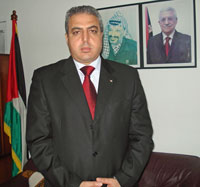http://www.thediplomaticsociety.co.za
Vietnam - the Rising Economic Force in Asia
 By Srimal Fernando Asia Correspondent
By Srimal Fernando Asia Correspondent
Vietnam
is one of the most fascinating countries in South East Asia. It is a
country on the move with a rapid growth of 5 percent (estimates 2012).
The country has a population of 91.5 million (estimates 2011) with a
wealth of dialects spoken in different regions. The people of the
country have a well-deserved reputation for being hard workers. Today
the largely agrarian society of the country is shifting towards a more
multi-sector economy after a robust growth in the past 20 years. The
country has made significant headway into the international market in
recent years.
The
agricultural sector continues to employ a significant proportion of the
labor force and the balance is represented by the service and industry
sector. Since the mid 90’s, export growth continues to be the driving
force behind the robust economy of the country. In the first seven
months of 2012 the turnover of the country’s exports were estimated at
62.9 billion dollars. The number of foreign companies investing in the
country has been increasing steadily and has a unified exchange rate for
foreign currencies, which floats in response to the basic exchange
market development. At present one dollar can purchase almost 20,000
Vietnamese don in local currency.
Figures
from the Ministry of Planning and Investment show that donors had
pledged a total assistance of 71.8 billion dollars from 1993 to 2011.
Vietnam has a large agricultural sector and is a net exporter of farming
products. It is the second largest rice and coffee producer in the
world.
The
burgeoning high-end industries based at the Export Processing Zones in
Hanoi, Hue Hai Phong, Ho Chi Minh City, Binh Duongand Dong Nai yield
many opportunities for investors. Exports of garments and textiles are
one of the main sources of foreign exchange income for Vietnam. In the
first seven months of 2012 the value of apparel exports stood at 8.2
billion dollars. Despite having many active players, the telephone
parts manufacturing industry in Vietnam had an approximate market value
of 6.2 billion dollars in the first half of the year. The other major
industries in the country are crude oil, steel, seafoods, wood product,
rubber, machinery, electronic equipment, consumer goods,
pharmaceuticals, chemicals and mineral fuels. Vietnam has also
positioned itself as a key destination for operation of multinational
companies in a variety of industries. In the recent years, the country
has successfully attracted many big names and reputed global companies
such as Nippon, Hitachi, Isuzu, Samsung, KFC, Toshiba, Canon, Toyota,
Honda, Petronas and Lotte Mart.
Moreover,
the fast growing tourism sector is another major pillar in the overall
economic field of the country. Vietnam is emerging as a strong tourist
destination with number of visitors to the country climbing to 6.0
million in 2011. Traveling to the country can be done in different ways.
However the experience that a visitor gains is unforgettable. The
country is home to a wide range of domestic and international airports.
Hanoi’s Noi Bai Airport, Danang and Tan Son Nhat Airport of Ho Chi Minh
City are the major stopover points for many international airlines.
These aviation hubs serve as a base to Vietnam Airlines, the flag
carrier of the country. Tourists visiting this beautiful country will
find that things they can see and do are limitless. Hanoi known as
“city of lakes” the capital of the country is today one of the most
charismatic and cosmopolitan cities in Vietnam. It is a thriving
metropolis with cloud-tickling skyscrapers, numerous specialty shops,
boutiques and colorful markets that unhesitatingly leap into the future .
The
name of the iconic leader Ho Chi Minh comes to mind when we remember
the recent history of the country. The Ho Chi Minh mausoleum is a marble
edifice with his remains displayed inside the chamber. This mausoleum
was built to show the deep gratitude by the countrymen to their leader.
It is the most recognizable tourist spots in Hanoi that attracts
thousands of visitors every day.
Visitors
are charmed by the city which gracefully combines eras and cultures . A
visit to the country would remain incomplete if one doesn’t drive the
3½-hour journey on road from Hanoi to Halong Bay port. The UNESCO world
Heritage site Halong (or "Descending Dragon) Bay is situated amidst a
splendid panorama. The bay covers an area of 1500-square-kilometres
dotted with a cluster of 1960 lime stone islands. A double deck wooden
boat cruise in the bluish green waters can be an enjoyable journey. One
can make a leap to the south most important city; the Ho Chi Minh City
or Saigon situated 1760 kilometers south of Hanoi. It is a beautiful
cosmopolitan town with paved walk paths, 19th century buildings
besides sprawling complexes that show the development fever in the
country. Among its highest-esteemed attractions are the Notre Dame
Cathedral, Municipal Theater, the re-unification palace and the Vietnam
War Memorial Museum. Every year millions of tourist visit the noteworthy
towns of Hoi An, Dalath, Hue and Danang to marvel at its exquisite
beauty. Shopping is undoubtedly an attraction in the country. The
choices and variety for items here is incalculable.
On
the development side, Vietnam’s transport system has already achieved
measurable improvements. The country has launched several highway
projects to bolster the 222,179 kilometers of road system. Out of this
about 25 percent of highways are paved. Having doubled in length in
recent years, multi-lane expressways now connects several major cities
with more construction planned to upgrade the paved highways. To boost
the state highway system the country plans to spend 14 billon dollars in
the coming years.
As
one of the fastest growing economies in Asia, Vietnam has prospects to
position itself towards economic prosperity. Vietnam remains one of the
most important trading partners in the globe. The county has opened up a
host of opportunities for investors to tap the rapidly expanding local
and regional markets.
( Source http://www.thediplomaticsociety.co.za/index.php?option=com_content&view=article&id=435)







